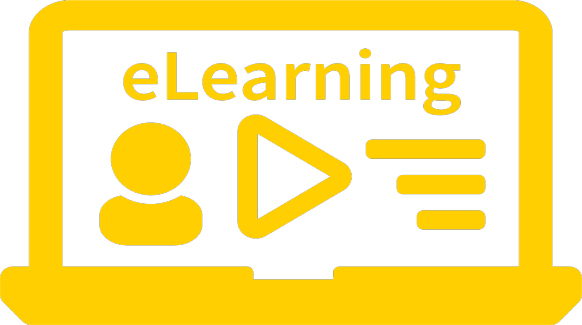
Click image to zoom.
Double click image to zoom.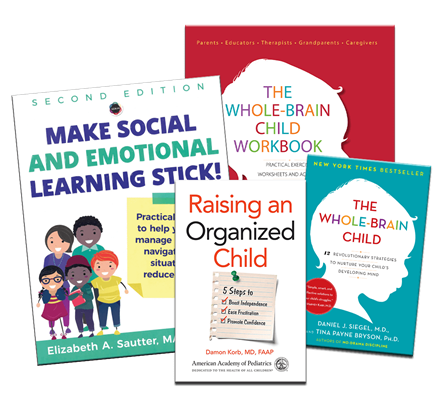
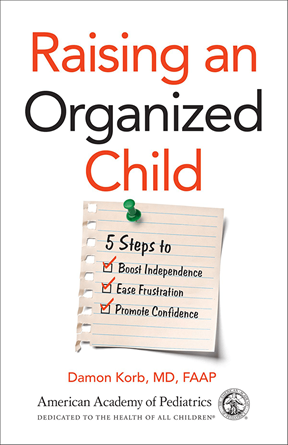
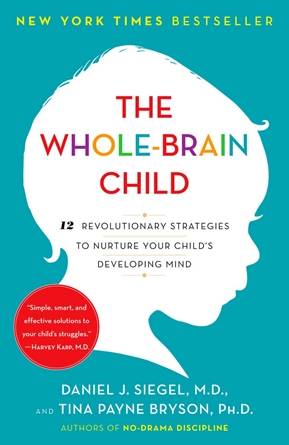
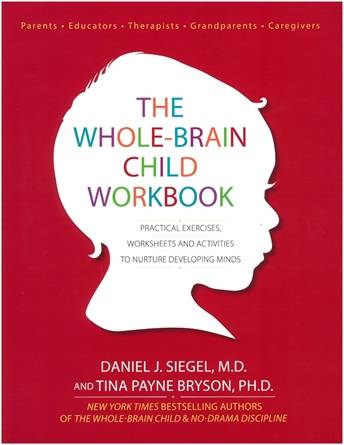
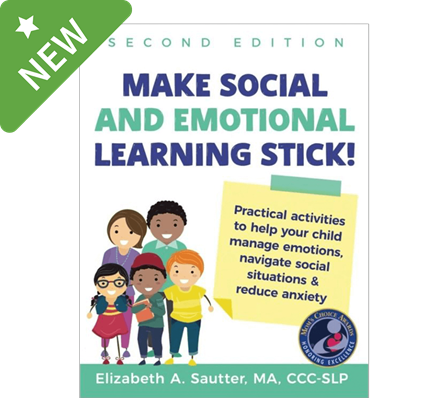
- Ages: 4+
- Format: Paperback
- ISBN: B-HOME
- Published: 2023
Description
Learning how to organize & prioritize thinking starts at home and gives children a big boost when they enter school. It also plays a huge role in developing other social strengths, such as understanding their own and others’ thoughts, emotions, actions & reactions, developing healthy relationships, and fostering positive self-esteem. This budget-saving bundle includes 4 books that explore how the brain works and how you can support organized thinking and the development of social learning in children with practical metacognitive strategies and age-specific exercises and activities.
Take a look inside the bundle!
Raising an Organized Child
Frustrated parents who are tired of chaos will find concrete, actionable guidance for raising an independent, self-assured, and organized child. Dr. Damon Korb defines the neurodevelopmental abilities that are critical for organization and shows parents how to develop their children’s organized thinking skills. Buy the book as part of the bundle, or separately at full price.
The Whole-Brain Child
This book explores the role different parts of our brains play in managing our own behavior. The authors, a neuropsychiatrist and a parenting expert, illustrate how teaching children about their brains can help them learn to cultivate healthy emotional and intellectual development, in addition to self-management, in order to foster balanced lives that include healthy relationships, success in school, responsible behavior, and positive self-regard. Written for use with children, in language and images they can understand, this book explains and visually depicts simplified neurology paired with 12 concrete metacognitive strategies to help children learn how to better control their actions and reactions. Buy the book as part of the bundle, or separately at full price.
The Whole-Brain Child Workbook
Based on their best-selling book, The Whole-Brain Child, internationally acclaimed neuropsychiatrist Dan Siegel and brain-based parenting expert Tina Payne Bryson have created a companion workbook to apply the metacognitively based whole-brain principles. The workbook presents a unique, interactive approach that allows readers to not only think more deeply about how the ideas fit their own parenting (and or teaching) approach, but also develop specific, practical ways to implement the concepts with children. Provides dozens of practical, age-specific exercises and activities to help children learn to better manage their own minds. Buy the book as part of the bundle, or separately at full price.
Make Social and Emotional Learning Stick—2nd Edition
Parents and teachers! Here are 185+ user-friendly, adaptable activities, demonstrations, and rehearsal opportunities to support social emotional learning in early learners in diverse social settings—from the dinner table, to the school setting, to the greater community. Using contributions from numerous social learning experts, this handbook helps build social emotional competencies with a focus on consistency, modeling, play, and practice. By making a "social learning diet" part of everyday life, social learners develop verbal and nonverbal language, listening skills, understanding of hidden rules, perspective taking, emotional self-regulation, and more. Buy the book as part of the bundle, or separately at full price.
Related Materials

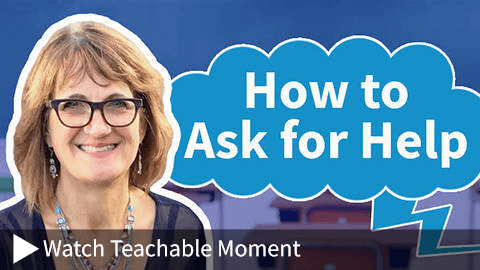
Instructor: Michelle Garcia Winner
It’s human nature to want to help others, but it’s often difficult for people to ask for help, especially those with social emotional learning differences. In this webinar, we’ll discuss why children, students, and adults may resist help or refuse to ask for it and we’ll deconstruct the multi-step process through which we ask for help. We’ll also explore the social emotional benefits for all participating in this unique and rewarding relationship.

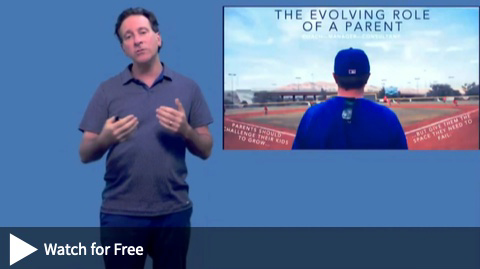
Instructor: Michelle Garcia Winner
In this short video clip from the Social Thinking Providers' Conference, Dr. Damon Korb—a developmental and behavioral pediatrician and author of Raising an Organized Child—uses a baseball analogy to help parents understand how their role is constantly shifting, allowing their child to take on more of their own executive functions as their children progress through their teenage years. Damon’s full 60-minute keynote was packed with ideas and strategies that were much appreciated by his audience.






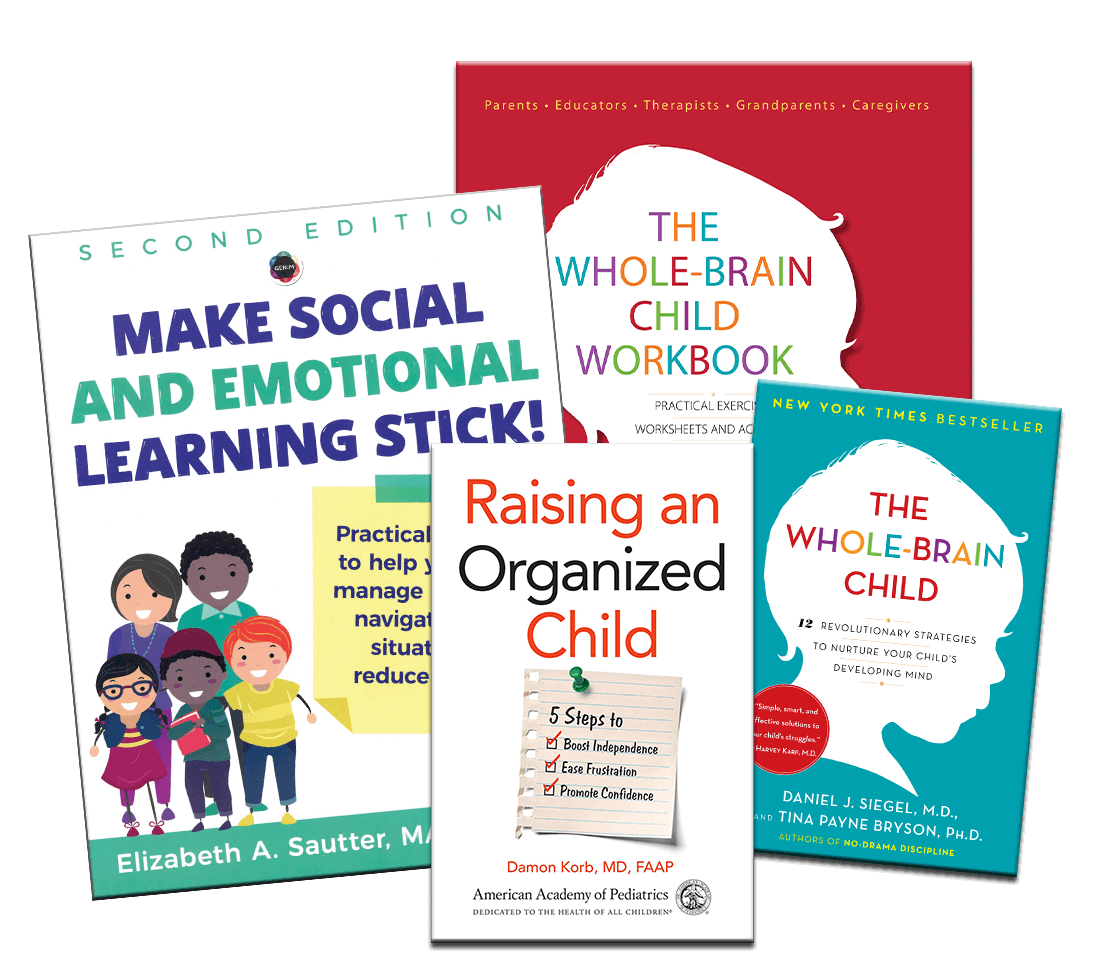

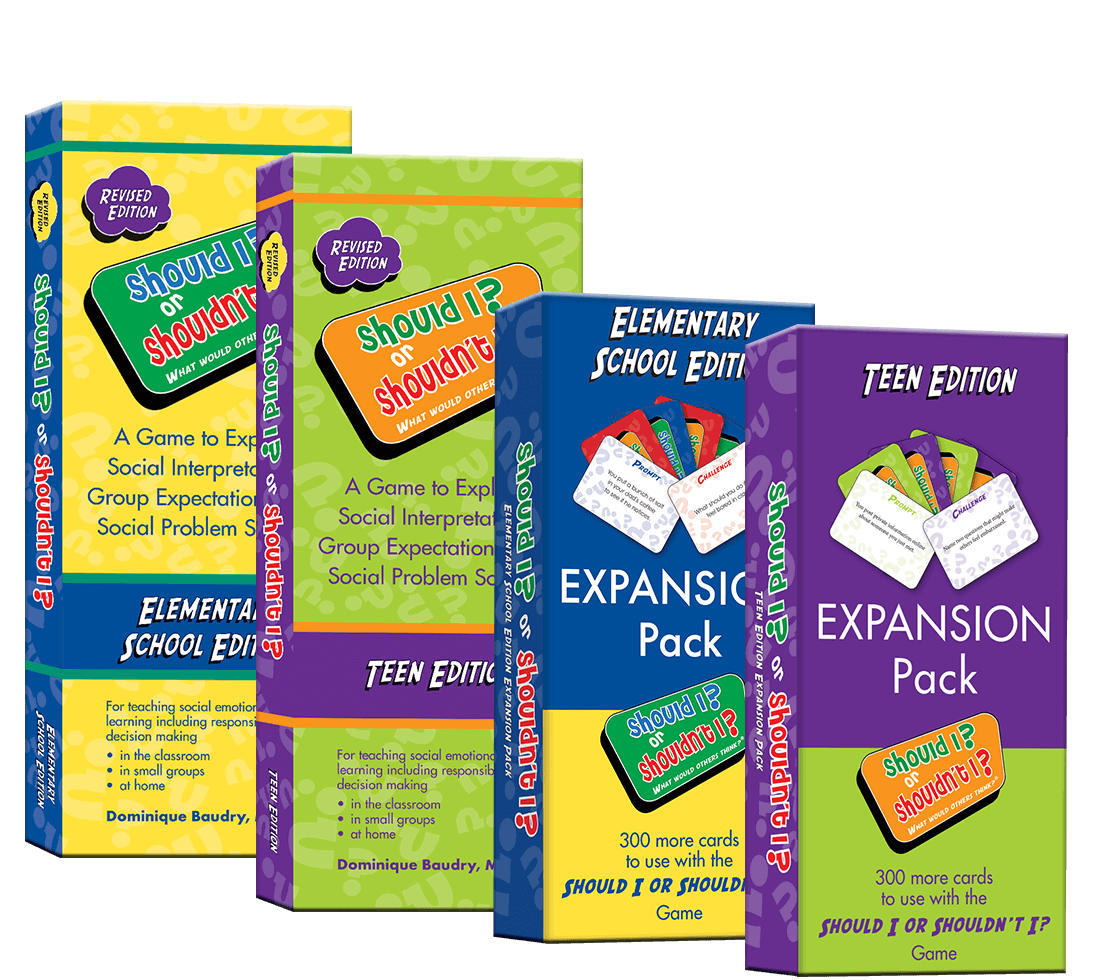
Home & Family Bundle
Tell us something good!
There was a problem adding this comment. Plaease try later.
Please log in